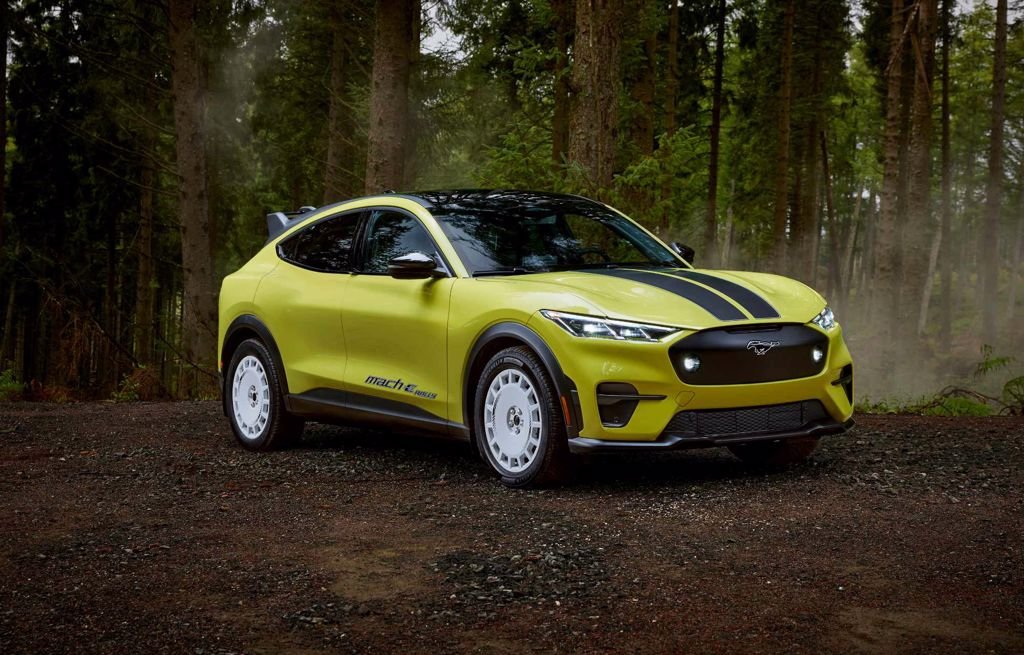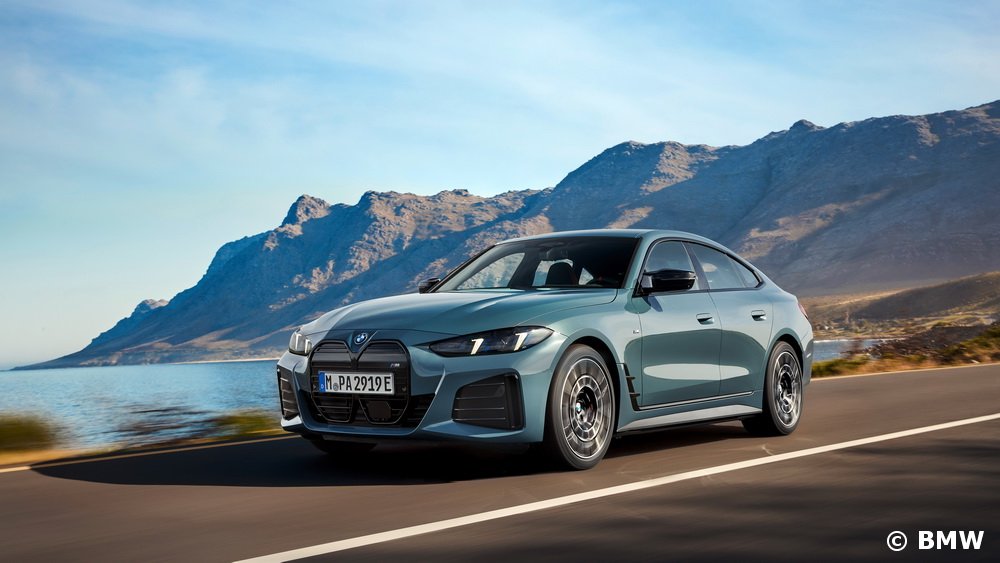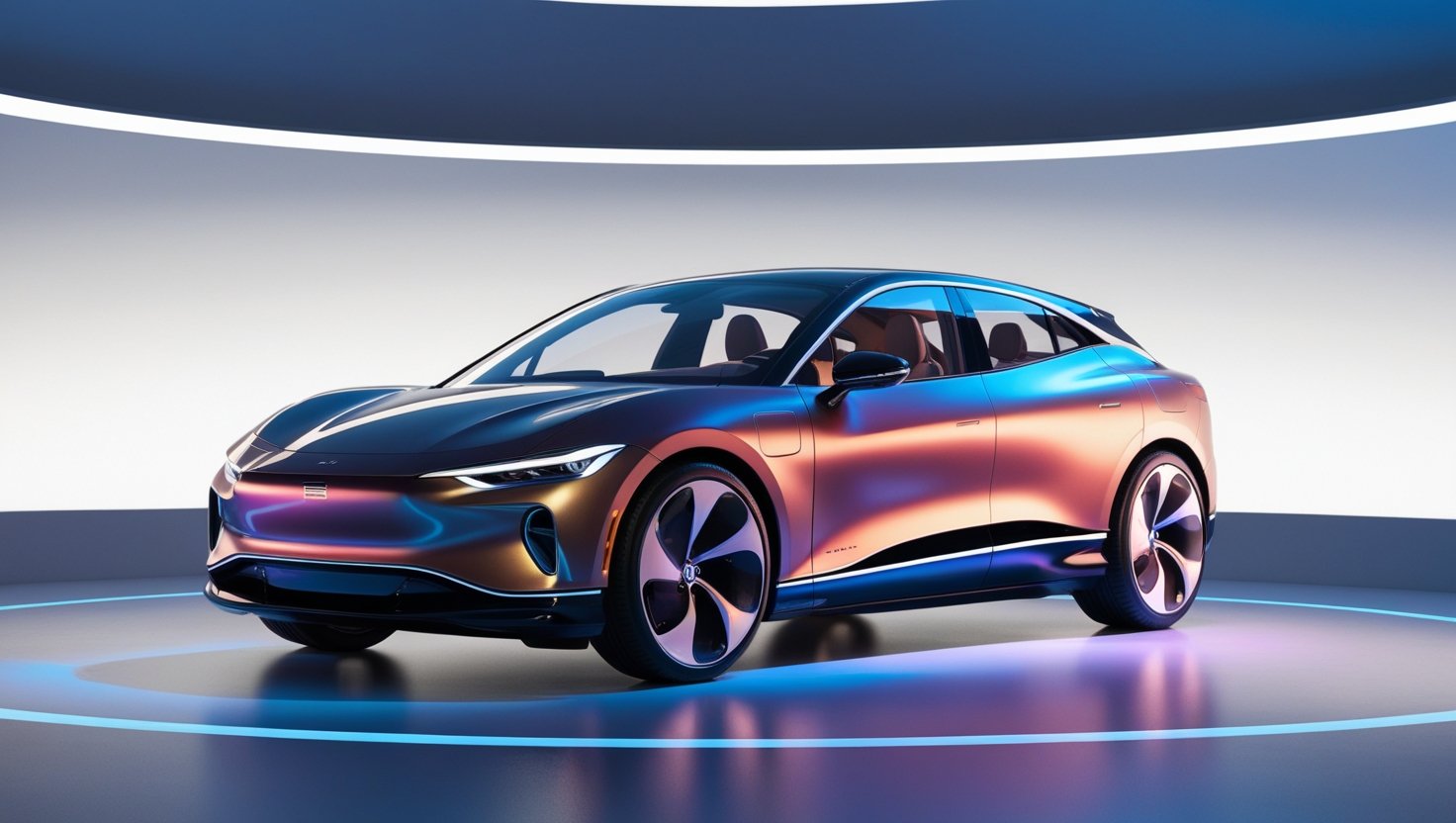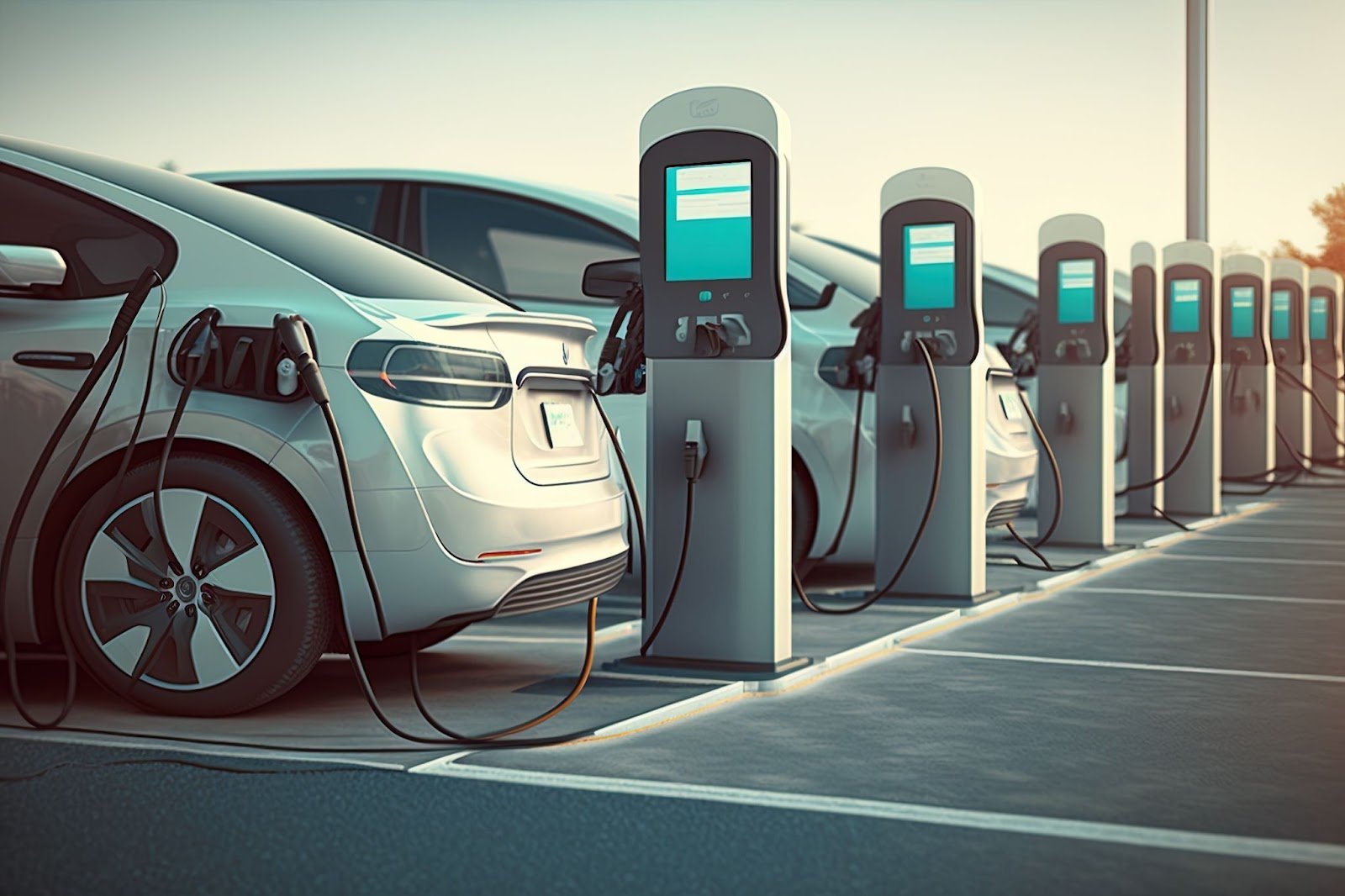Introduction to Eco-Friendly Cars
Eco-friendly cars are designed with the primary goal of minimizing their impact on the environment. These vehicles represent a significant shift in the automotive industry, reflecting a growing awareness of climate change and the urgent need for sustainable transportation solutions. The transportation sector is one of the largest contributors to greenhouse gas emissions, accounting for a substantial percentage of global carbon footprints. Therefore, the development and adoption of eco-friendly cars are crucial in mitigating these adverse environmental effects.
As public consciousness regarding environmental issues evolves, so does the demand for sustainable vehicles. Eco-friendly cars encompass a variety of technologies, including battery-electric vehicles (BEVs), plug-in hybrid electric vehicles (PHEVs), and hydrogen fuel cell vehicles (FCVs). Each of these options presents a cleaner alternative to traditional internal combustion engine (ICE) vehicles, which rely on fossil fuels. Moreover, advancements in technology have significantly enhanced the efficiency and performance of these eco-friendly alternatives, making them increasingly appealing to consumers.
The market for eco-friendly mobility solutions is projected to expand rapidly, driven by government regulations aimed at reducing emissions, consumer preferences for sustainable products, and the automotive industry’s commitment to innovation. This growth is reflected in the rising number of manufacturers investing in the research and development of greener vehicles. Innovations such as improved battery technology, lightweight materials, and alternative fuels are transforming how we perceive transportation’s environmental impact.
By prioritizing eco-friendly cars, individuals can play a pivotal role in supporting a sustainable future. The transition towards greener vehicles not only reduces carbon emissions but also fosters cleaner air and a healthier planet. As this blog post delves into the most eco-friendly cars of 2025, it is crucial to recognize the importance of sustainable transportation solutions in addressing the pressing challenges of our time.
Latest Green Technologies
As the automotive industry evolves, the integration of cutting-edge green technologies is becoming increasingly significant in the development of eco-friendly cars. By 2025, numerous advancements are expected to reshape the landscape of eco-conscious transportation. One of the most notable areas of innovation is battery technology. The introduction of solid-state batteries is anticipated to vastly improve energy storage capacity, reduce charging times, and enhance the overall lifespan of electric vehicles. Compared to traditional lithium-ion batteries, solid-state variants promise greater efficiency and safety, thus supporting the shift towards cleaner alternatives.
Alongside battery advancements, the exploration of renewable energy sources is playing a pivotal role in eco-friendly car design. Automakers are actively seeking ways to harness solar power, employing integrated solar panels that can supplement battery charging. This innovation not only bolsters energy efficiency but also allows vehicles to operate more independently of the grid, promoting sustainability. Additionally, the development of hydrogen fuel cells is progressing, which could provide a promising alternative to conventional energy sources by utilizing hydrogen as a clean fuel, emitting only water vapor as a byproduct. Such technologies are essential for reducing greenhouse gas emissions in the transportation sector.
Moreover, manufacturers are increasingly adopting innovative manufacturing processes aimed at minimizing waste and emissions. Techniques such as 3D printing and the use of recycled materials in vehicle production demonstrate a commitment to sustainability that resonates with environmentally conscious consumers. These practices not only reduce the carbon footprint associated with vehicle manufacturing but also enhance vehicle performance through weight reduction and improved design flexibility. Collectively, these progressive green technologies are setting the stage for a new era of transportation that prioritizes efficiency, performance, and environmental integrity, establishing a roadmap toward a greener future in the automotive sector.
Fuel-Efficient Engines: The Future of Powertrains
In 2025, fuel-efficient engine technologies play a pivotal role in redefining automotive powertrains, driving the shift towards more sustainable and eco-friendly vehicles. Among these technologies, hybrid, plug-in hybrid, and fully electric engines exemplify the advancements in energy efficiency and emissions reduction. These engine designs not only enhance fuel economy but also significantly lower the carbon footprint associated with traditional combustion engines.
Hybrid engines combine a conventional internal combustion engine with an electric motor, optimizing fuel usage during various driving conditions. This integration allows for reduced fuel consumption and minimized emissions, making hybrid vehicles an attractive option for environmentally conscious consumers. Plug-in hybrids extend this concept by offering the flexibility to charge the battery through an external source, increasing the electric-only driving range. This ability enables drivers to utilize electric power for short trips, further enhancing gas mileage and reducing dependence on fossil fuels.
Transitioning to fully electric engines marks a revolutionary step forward. These vehicles rely solely on electric power, significantly cutting greenhouse gas emissions and eliminating tailpipe pollutants. The growing availability of charging infrastructure and advancements in battery technology boost the practicality of electric vehicles (EVs), making them a viable mainstream option. Additionally, manufacturers are investing in solid-state batteries that promise higher energy density, faster charging times, and enhanced safety compared to traditional lithium-ion batteries.
Furthermore, alternative fuels, such as hydrogen, are poised to play a crucial role in the future of automotive powertrains. Hydrogen fuel cell vehicles convert hydrogen into electricity to power an electric motor, producing only water vapor as a byproduct. This technology offers a sustainable solution, particularly for long-range applications and heavier vehicles, where battery weight and capacity can be limiting factors.
As the automotive industry advances towards a greener future, embracing these fuel-efficient engine technologies will be essential. By prioritizing hybrids, plug-in hybrids, fully electric engines, and innovative alternative fuels, manufacturers and consumers alike can contribute to a more sustainable transportation landscape in the years to come.
Sustainable Car Designs
The automotive industry is undergoing a significant transformation as manufacturers increasingly recognize the importance of sustainable design. Sustainable car designs are not only about the use of alternative fuels or electric powertrains; they also entail the inclusion of eco-friendly materials and innovative design principles that reduce environmental impact throughout a vehicle’s lifecycle. By integrating sustainability into their core operations, automakers aim to create vehicles that are both appealing to consumers and beneficial to the planet.
One of the primary approaches in sustainable car design is the utilization of recyclable materials. Modern vehicles are now frequently constructed using materials such as recycled aluminum and bioplastics, which not only reduce the carbon footprint associated with production but also lessen the demand for virgin resources. For example, many manufacturers are now employing composite materials derived from renewable sources, which can easily be repurposed at the end of the vehicle’s lifespan, thus contributing to a circular economy.
Moreover, minimalistic designs have gained traction within the sustainable car paradigm. A focus on simplicity and efficiency allows designers to streamline both the manufacturing process and the vehicle’s use of energy. Minimalistic models often feature fewer complex components, reducing overall weight and improving fuel efficiency. This can lead to lower emissions, which contributes positively to environmental conservation efforts.
The role of aerodynamics in sustainable automobile design cannot be overlooked. Enhanced aerodynamic shapes reduce drag and increase fuel efficiency, which is crucial in both traditional and electric vehicles. Manufacturers are now leveraging advanced simulations and wind tunnel testing to create designs that cut through air efficiently. This not only supports the drive for sustainability but also results in improved performance metrics, appealing to a broader range of consumers.
Top Eco-Friendly Cars of 2025
As the automotive industry continues to evolve, eco-friendly cars are becoming increasingly prominent in the marketplace. Several manufacturers are making significant strides towards integration of sustainable technologies in their vehicles. Here is a curated list of the most eco-friendly cars available in 2025, each selected for its unique features, impressive fuel efficiency, and commitment to reducing environmental impact.

The first vehicle worth mentioning is the Tesla Model 3. This all-electric sedan not only offers an impressive range of approximately 358 miles on a single charge, but also maintains industry-leading acceleration and performance. Priced around $40,000, Tesla’s commitment to sustainable manufacturing processes enhances its appeal among eco-conscious consumers.

Next, the Hyundai Ioniq 6 showcases a sleek design coupled with remarkable efficiency, achieving up to 375 miles per charge. This electric vehicle incorporates advanced aerodynamics and sustainable materials, highlighting Hyundai’s dedication to minimizing environmental impact. The Ioniq 6 starts at approximately $35,000, aiming to make green mobility accessible.

Another notable entry is the Ford Mustang Mach-E, an all-electric SUV that delivers a thrilling driving experience. With a range of around 300 miles, this vehicle demonstrates Ford’s evolving approach to sustainability while still capturing the spirit of the Mustang brand. Pricing ranges from $43,000, appealing to consumers looking for performance alongside eco-friendly credentials.

Finally, the BMW i4 is an electric gran coupe that combines luxury with eco-consciousness. With up to 300 miles of electric range and innovative, sustainable design elements, the i4 starts at around $56,000. BMW’s commitment to reducing CO2 emissions in production further underscores its role in promoting a greener future.
These vehicles represent just a snapshot of the increasing options available in the eco-friendly car market. As consumer demand for sustainable transportation grows, manufacturers are responding with models that blend efficiency, performance, and environmental responsibility.
Government Incentives and Regulations
The transition towards eco-friendly vehicles is significantly influenced by various government incentives and regulations aimed at encouraging consumers and manufacturers alike. Governments around the world have introduced a range of financial benefits such as tax breaks, rebates, and grants to promote the adoption of electric and hybrid vehicles. For instance, many countries offer substantial tax deductions for the purchase of electric cars, thus making them more financially attractive for consumers. These incentives not only lower the initial cost of acquiring an eco-friendly vehicle but also reduce the overall cost of ownership over time through savings on fuel and maintenance.
Beyond financial incentives, government regulations play a crucial role in shaping the automotive market. Stricter emissions standards and fuel efficiency requirements compel manufacturers to invest in research and development of cleaner technologies. These policies are designed to significantly reduce greenhouse gas emissions and other pollutants, aligning with global efforts to combat climate change. As a result, auto manufacturers are increasingly focusing their strategies on producing low-emission vehicles, thus ensuring compliance with government mandates while meeting consumer demand for eco-friendly options.
Internationally, there is a growing trend toward harmonizing regulations, which further fosters the adoption of eco-friendly cars. For example, regions like the European Union are setting ambitious targets to phase out fossil fuel vehicles altogether by 2030. This type of unified approach encourages manufacturers to diversify their eco-friendly offerings. As consumers become more aware of the environmental impact of their choices, these regulatory frameworks not only facilitate a shift towards sustainable practices but also influence individual purchasing decisions.
In conclusion, the combination of government incentives and stringent regulations provides a robust framework that encourages the adoption of eco-friendly vehicles. By shaping both consumer preferences and manufacturing strategies, these policies are critical in steering the automotive industry towards a sustainable future.
Comparative Analysis: Eco-Friendly Cars vs. Traditional Vehicles
The evolution of the automotive industry has led to a stark contrast between eco-friendly cars and traditional vehicles. In assessing the environmental impact, eco-friendly cars, such as hybrids and electric vehicles (EVs), demonstrate significant advantages. They produce fewer greenhouse gas emissions, which contributes to lower air pollution levels compared to traditional gasoline or diesel-powered vehicles. The life-cycle emissions of eco-friendly vehicles are also notably less, especially when powered by renewable energy sources. This factor highlights the crucial role of sustainable energy in enhancing the ecological benefits of these cars.
Cost-effectiveness is another important consideration. Although the initial purchase price of eco-friendly cars can be higher than that of traditional vehicles, potential savings emerge through reduced fuel costs and lower maintenance expenditures. Electric vehicles, for instance, benefit from lower charging costs relative to gasoline prices, which can lead to substantial savings over time. Moreover, many governments offer tax incentives or rebates for purchasing environmentally friendly vehicles, further offsetting costs. Conversely, traditional vehicles often incur higher expenses associated with fuel consumption and frequent servicing due to engine complexity.
Fuel efficiency is typically superior in eco-friendly cars. A well-designed hybrid or electric vehicle can achieve significantly higher miles per gallon compared to traditional counterparts. This efficiency translates into both economic savings and a reduced carbon footprint. Additionally, eco-friendly vehicles often utilize regenerative braking technology and other innovative solutions that enhance overall energy use, making every trip more sustainable.
Finally, maintenance for eco-friendly cars can be less demanding. Electric vehicles have fewer moving parts, leading to reduced wear and tear and diminished maintenance needs. Traditional vehicles, by contrast, require regular oil changes and a more complex array of services. Ultimately, while eco-friendly cars present certain initial challenges, their benefits in environmental impact, cost-effectiveness, fuel efficiency, and maintenance make them a compelling choice for future car buyers.
Consumer Perspectives on Eco-Friendly Cars
The increasing awareness of climate change has fostered a shift in consumer attitudes toward eco-friendly cars. Surveys indicate that a significant portion of the population is now considering sustainability in their vehicle purchasing decisions. Many consumers recognize eco-friendly vehicles, particularly electric and hybrid options, as a more responsible choice that contributes to minimizing carbon footprints and conserving natural resources. However, misconceptions persist, often hindering wider adoption.
One prevalent misconception is the belief that eco-friendly cars compromise performance or features compared to traditional vehicles. Consumers are often concerned that electric vehicles (EVs) are slower or less powerful, which is not always the case. In reality, advancements in technology have equipped many models with impressive acceleration and innovative features, appealing to performance-oriented buyers. Moreover, potential barriers such as limited charging infrastructure, perceived higher upfront costs, and range anxiety often dissuade consumers from making the switch. Overcoming these hurdles will require improved public policy, enhanced charging networks, and more comprehensive consumer education initiatives.
As the perception of eco-friendly cars evolves, so does consumer motivation. Environmental concerns are at the forefront for many buyers, but economic incentives, such as lower fuel and maintenance costs, are also driving interest. Additionally, manufacturers can capitalize on this trend by creating targeted marketing campaigns that emphasize the long-term savings and benefits associated with owning an eco-friendly vehicle, rather than just the purchase price. To effectively engage consumers, it is critical for manufacturers to understand their values and preferences, implementing feedback mechanisms that allow consumers to voice their desires for features that enhance eco-friendliness without sacrificing comfort or style.
The Future of Eco-Friendly Transportation
The future of eco-friendly transportation appears promising, driven by technological advancements, changing consumer preferences, and an increasing global emphasis on sustainability. As we look beyond 2025, it is expected that electric vehicle (EV) technology will accelerate in sophistication, leading to increased efficiency, longer battery life, and reduced charging times. Manufacturers are anticipated to innovate solutions that will extend the range of electric vehicles, addressing one of the significant concerns that currently hinder their adoption. As battery technology evolves, we may see solid-state batteries become mainstream, further enhancing vehicle performance while minimizing environmental impact.
Consumer behavior is also evolving, with a growing awareness of climate change and its implications. This shift is driving demand for greener alternatives, including hybrid and completely electric models. The automotive industry is likely to respond by expanding its portfolio of eco-friendly vehicles. Additionally, the integration of smart technology, such as AI and IoT, will allow for personalization and optimization of vehicle performance. Consumers will be more inclined towards cars that not only commit to reducing emissions but also provide a seamless and connected driving experience. Furthermore, car-sharing and ride-hailing services that prioritize electric fleets are expected to gain traction, transforming urban commuting patterns.
Moreover, the automotive industry’s landscape will continue to evolve with partnerships between traditional automakers and tech companies. This collaboration could hasten the introduction of sustainable practices throughout the supply chain, including the production of eco-friendly materials and methods. Governments around the globe are anticipated to foster policies that facilitate the transition to renewable energy sources, thus incentivizing both manufacturers and consumers to embrace eco-friendly transportation. The combined efforts in technology innovation and shifts in societal values will steer the future, significantly contributing to global environmental goals and sustainable living.


